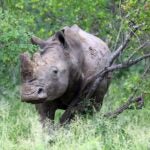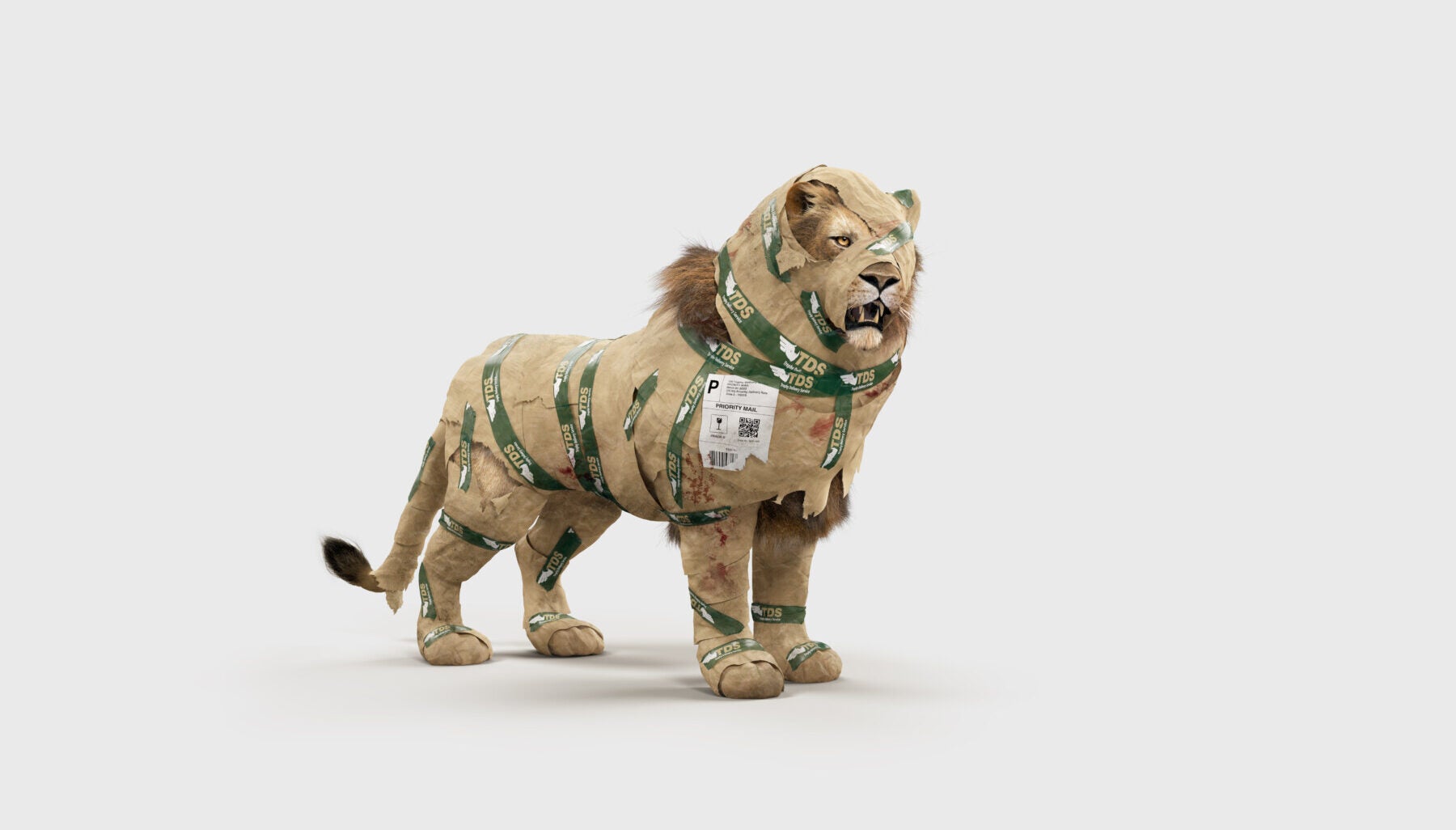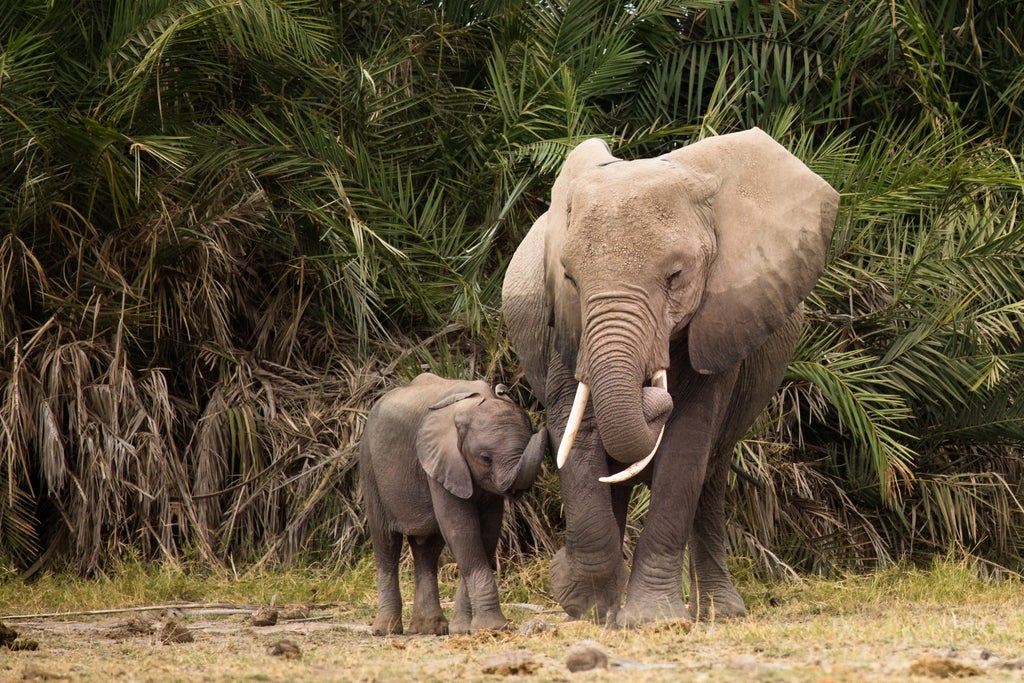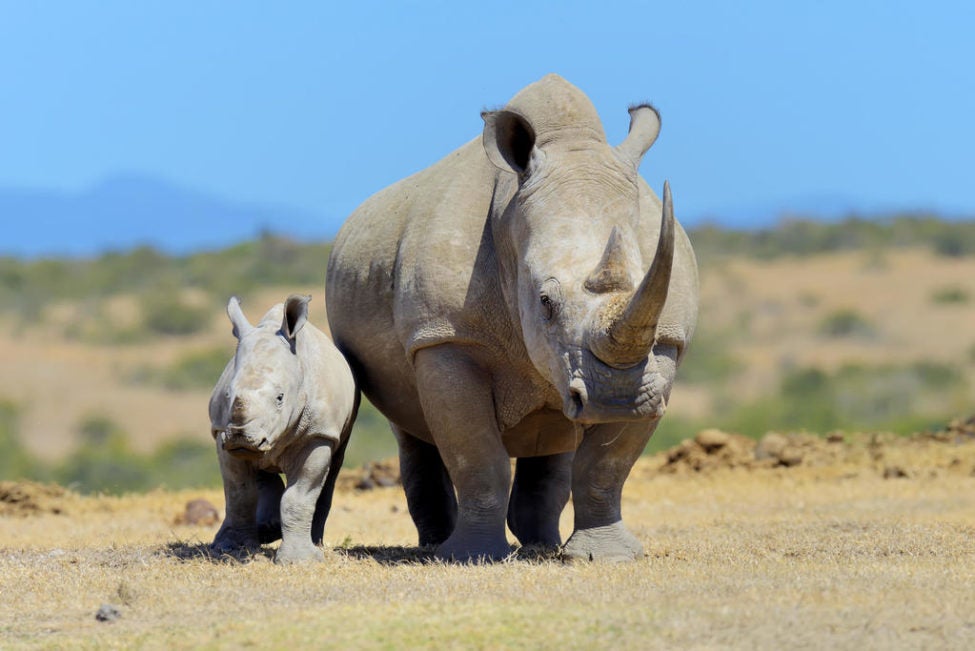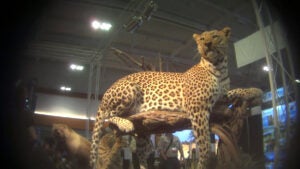
BRUSSELS—A shocking undercover investigation released by the Humane Society of the United States and Humane Society International exposed the hypocrisy that the trophy hunting industry uses to promote the killing of imperiled species. The Safari Club International convention in Nashville, Tennessee Feb. 22 through 25, hosted over 850 exhibitors from more than 140 countries peddling trophy hunts and products made from animal skins and claws. The event brought in about $6 million in revenue for SCI to further its lobbying efforts to roll back laws and regulations that protect vulnerable species from trophy hunting, including the US Endangered Species Act protections.
Trophy hunts were offered in at least 65 countries with the majority in South Africa, Canada, Namibia, Zimbabwe and New Zealand. Almost 100 outfitters offered elephant hunts, at least 115 offered leopard hunts, 98 offered lion and giraffe hunts, 89 offered hippo hunts, and 39 offered rhino hunts. On exhibitors’ websites, critically endangered animals, like the forest elephant and the black rhino, were also available to hunt, as well as captive animals such as scimitar oryx, a species classified as extinct in the wild and bred almost exclusively for trophy hunting.
The investigation revealed hunting trips sold from $2,500 to $143,000 with menus so hunters could “add-on” animals in addition to their primary targets. Most African carnivore hunts were advertised to include baiting—a practice that uses carcasses of other animals, like impala and zebras, or other items to lure the target species, which violates fair chase ethics and causes conservation issues by drawing out animals from protected areas into hunting zones.
Among the most revealing investigation findings is a recorded conversation with an exhibitor who encouraged the investigator to schedule a white rhino hunt before it is too late as the species is on the brink of extinction. They stated: “The one that’s gonna be closed down the soonest to import to the United States because of the numbers going down is the rhino… and if you want something Africa[n], you have to get the rhino as soon as possible.”
Outfitters were also vocal about “bending the rules” and broke policies to make a sale. One vendor violated the convention’s own policy against promoting captive lion hunts—a cruel, senseless practice condemned by the South African and U.S. governments and many others. He told the investigator, “You can hunt…captive bred lions in South Africa, cause this way you’re not impacting the wild lions…but they…catch their own animals; they’re as wild as can be.” Another told the HSUS/HSI investigator, “…we’ve got hunters that really can’t walk at all…we do bend our own rules a little and we shoot them from the truck…we don’t have a problem with it.” Hunting from a vehicle is illegal in many places because it violates fair chase ethics and invites numerous safety hazards.
Kitty Block, president and CEO of the Humane Society of the United States, said: “Despite the public’s growing disdain for trophy hunting, Safari Club International’s convention celebrates the senseless killing of animals, putting their deaths up for sale around the world, all to be turned into nothing more than trinkets and stuffed trophies. Make no mistake: This is an industry that threatens our most imperiled and ecologically important wildlife. As one of the world’s largest consumers of hunting trophies of imperiled species, the United States government has the responsibility to end hunting trophy imports.”
Dr Joanna Swabe, senior director of public affairs for Humane Society International/Europe, said: “What our colleagues saw and heard at the US convention are not isolated incidents—similar things have also been reported to happen at European hunting fairs. Regrettably, the EU is the second largest importer of trophies from internationally protected species. The European Commission needs to take immediate action to ban hunting trophy imports in line with a precautionary approach to species’ protection. Recent public opinion polls and our various submissions to Commission stakeholder consultations highlight not only the urgent welfare, conservation and biological need for action on hunting trophy imports, but also the general public’s desire to see an end to this egotistical exploitation of endangered and threatened wild animals.”
Jeff Flocken, president of Humane Society International, said: “Iconic species like elephants, rhinos and leopards play critical roles in their respective ecosystems, with many other species dependent on the delicate balance they provide. Sadly, these same animals are also highly coveted by trophy hunters. And as they often target the largest individuals of a species, they weaken the gene pool and can even cause collapses of small populations. In the midst of this biodiversity crisis in which over one million species face extinction, the global community must strive to protect wild animals by eschewing cruel practices like trophy hunting.”
Podcast interview with the undercover investigator
Additional information:
- The EU is the second-largest importer of animal trophies in the world, according to HSI/Europe’s report Trophy Hunting by the Numbers. Between 2016 and 2018, the EU was the largest importer of lion trophies globally. Trophies from at least 15,000 internationally protected mammals from 73 CITES-listed species were legally imported to the EU between 2014 and 2018, with a nearly 40% increase in trophy imports to the EU during this period.
- As outlined in a recent report calling for a revision of the trophy hunting regime in the European Union, there is a long history of a lack of proper regulation and oversight when it comes to trade in hunting trophies. Even where trophy hunting is legal and follows management guidelines, there is evidence of population declines, indirect negative effects on populations, biologically unsustainable quotas, offtake of restricted individuals like breeding females and cubs, poor population estimates and monitoring, quotas assigned at the incorrect spatial scale, significant animal welfare concerns and a lack of transparency in data and policy and management decisions. A comprehensive ban on the import of hunting trophies of regulated species is a necessary precautionary approach to protect imperiled species.
ENDS
Media contact: Adeline Fischer, senior communications manager for HSI/Europe: afischer@hsi.org; +49 17631063219

